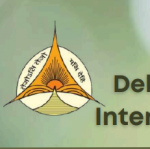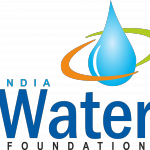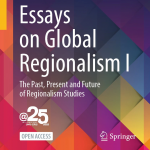Nidhi Nagabhatla and Martha Cassidy-Neumiller are Presenting Two Papers at the Inaugural National Sustainability Society Conference

Title and Abstract of Paper 1
Addressing the 'Complex Loop': Hydro Diplomacy and Integrative Adaptations in the Lake Chad and Congo Basins
Martha Cassidy-Neumiller1,2 *, Nidhi Nagabhatla1,2 , Gail Krantzberg1
1McMaster University, Canada
2UNU CRIS, Belgium
*Presenter
Drawing on our New Frontiers in Research funded project Climate Adaptation and Resilience Strategies (CLARS): Socio-Economic Vulnerabilities among Urban Migrants in the Lake Victoria Basin and Great Lakes Region project, and our International Development Research Centre (IDRC) Canada (PROJECT ID108976) funded project “Addressing climate- and water-driven migration and conflict interlinkages to build community resilience in the Congo Basin”, we will explore the ‘complex loop’ of water stress, migration, conflict, and climate change, in the Congo and Lake Chad Basins (LCB). These critical water arteries in Central Africa, are pivotal for the region’s hydrology and central to the socio-economic fabric of their riparian states. Despite their abundant natural resources, these basins are embroiled in complex socio-political challenges exacerbated by climate change, severely impacting indigenous and pastoral communities, and triggering new migration pathways for the most vulnerable. Using these basins as case studies, we emphasize the need for everyday adaptations to centre ‘participation’ and ‘cooperation’ among basin states and local communities, stressing the importance of consensus-building and integrating local needs and contexts into climate- and water-related decision-making. We suggest co-developing inclusive climate adaptation strategies that integrate regional hydro diplomacy through cooperation-focused arrangements and agreements could be leveraged as a win-win solution and advocate for policies that are reflective of and responsive to the complexities of the nexus. By fostering an inclusive approach that engages all stakeholders, particularly vulnerable communities, the African region can advance towards achieving just and resilient outcomes in the face of escalating climate challenges.
Title and Abstract of Paper 2
Equity and Justice in Everyday Adaptations-Panel 1 (EACC)
Advancing Methodological Justice and Equity in Climate and Water Research: Innovations and Pathways for Sustainable Futures"
Nancy Doubleday, 1, Nidhi Nagabhatla1,2 , and E Mario Mendiondo3
1McMaster University, Canada
2UNU CRIS, Belgium
3 Univ of Sao Paulo, Brazil.
Our study focuses on research design for methodological justice and equity in climate and water nexus, aiming to enhance outcomes through data diversification and methodological democratization. Over the past five years, we have contributed four key innovation pathways: 1) climate justice (JEDI); 2) Social-ecological systems (SES) and social-cultural-ecological systems (SCES); 3) adaptive co-management of research (ACMR); and 4) Co-creation of Indigenous Water Quality Tools. These innovations prioritize justice and equity, sharing power over design, methodology, participation, and resources to foster agency within civil society and equitably share research rewards, supporting engagement, research literacy, and self-efficacy. Our research networks, including Global Water Futures (GWF), Ohneganos: Let’s Talk Water, and Participedia, exemplify these innovations. For instance, the GWF project integrates traditional knowledge with technology to address Indigenous water quality issues. Pedagogical initiatives, such as Water Without Borders, promote interdisciplinary collaboration and research literacy. Despite these benefits, traditional research paradigms often prioritize top-down approaches, limiting participatory methods. To overcome these limitations, we will share our learnings to refine practices, promoting inclusivity and equity. We will demonstrate the value of integrating justice, equity, and participatory principles into research, enhancing the relevance and impact of research outputs and outcomes for more equitable and sustainable adaptation strategies.
More information about the conference can be consulted here.




